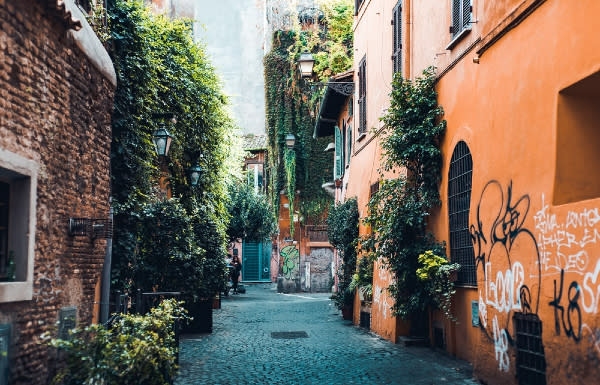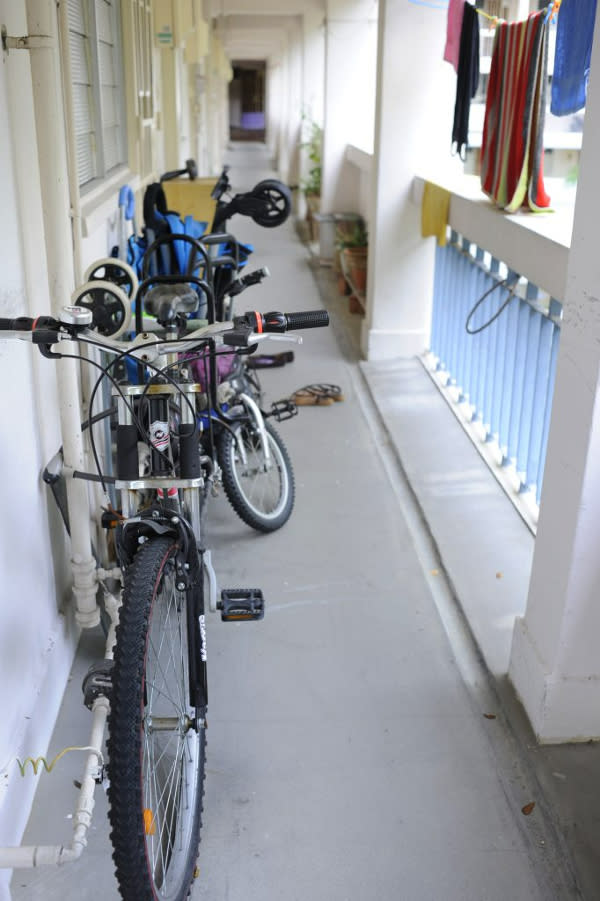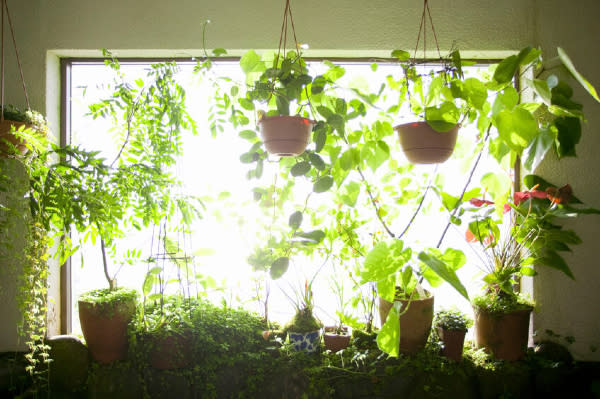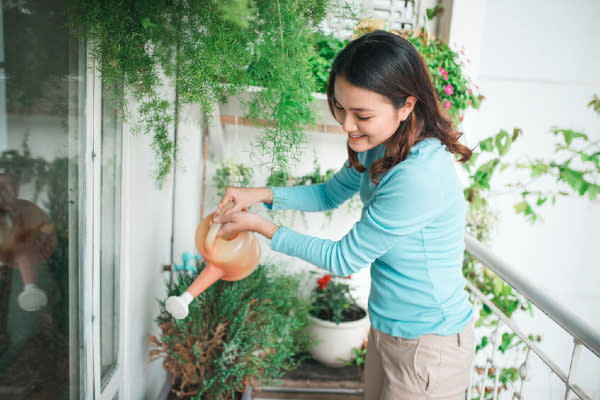Is It Illegal To Grow Plants Outside Your Own Home?

Plants are both beautiful and beneficial. They provide oxygen, purify the air, and there are even simple herbs and vegetables you can grow to savour the taste of your very own fresh produce.
When your plants are in full bloom, they can make the perfect gift for your friends and community. New garden plants can also be grown from cuttings, and we’re pretty sure no one can say no to free things, especially your very considerate neighbour.
But what happens if your considerate neighbour moves away and someone new comes along? He/she starts to pick a fight with you because of all the plants growing outside your home, or worse, threatens to report you to the local city council?
Well, first things first, here’s what you need to ask yourself...
Can You Grow Plants Outside Your Home?
Unfortunately, the legal answer is a "NO".
Despite your good intentions to beautify and green-ify your surroundings, local council (Majlis Perbandaran) rules dictate that you are not allowed to grow or place plants outside your home/front gate, or even in the alley behind your home.
The rules were implemented because:
The council has their own landscaping plans, and should residents decide to grow plants anywhere and everywhere, it would ruin the overall image of the place.
Unmaintained plants could become overgrown and pose a nuisance.
Pots and plants could be potential breeding grounds for Aedes mosquitoes.
Neighbours may ‘fight for space’ for their plants, especially in shared areas where there’s little room.
This ruling was recently reported in Subang Jaya, where residents were prohibited from growing fruit trees and vegetable patches in places outside their immediate property.
According to the Majlis Bandaraya Subang Jaya (MBSJ), only the trees initially planted by the developer or city council are allowed to be outside one’s property.
Hence, if a resident wants to plant a tree or shrub of their own, they will need to get the consent of their local council.
The same rule also applies to shared spaces like playgrounds and parks. Even if it’s a small patch by the edge of the playground that nobody ever goes to, it is considered an offence as public spaces cannot be used for one’s benefit.


PropertyGuru Tip
To give you a rough idea of how heavy the punishment may be, if you were to be found guilty of using any part of a public space like parks to grow your own greens, look into <a href="https://www.dbkl.gov.my/wp-content/uploads/2020/10/23-uuk-21.pdf" target="_blank" rel="noopener noreferrer">Kuala Lumpur City Hall's (DBKL) Local Government Act 1976 (Act 171)</a>. In it is stated that whoever is found to be using any part of the park for farming <strong>may be punished with a fine of RM2,000, jailed for not more than one year, or both!</strong>
Do These Rules Apply Everywhere In Malaysia?
Interestingly, these rules are created by the local councils. Therefore, some local councils may allow residents to grow plants outside their property, or set different guidelines for such actions.
For instance, if you live in Sarawak, you ARE allowed plants outside your home, but only certain ones recommended by the Majlis Bandaraya Kuching Selatan (MBKS). The council’s guidelines include the type of plants allowed, as well as any restrictions.
If you’re not sure if what you’re planting – or where you’re planting – might be illegal and get you in trouble with the law, the best option would be to seek clarification from your local council.
Are There Different Laws For Plants In Landed Homes vs. High-Rises?
We don’t mean the law of physics related to plants, but the legal laws and regulations regarding plants in your landed property or high-rise unit!
For landed properties, the by-laws are subject to your respective local council. So, if you’re living in Shah Alam, you will have to abide by the by-laws of the Majlis Bandaraya Shah Alam (MBSA).
On the other hand, strata title properties such as high-rises and gated-and-guarded developments are subject to both town council by-laws and additional ones by their Joint Management Body (JMB) or Management Corporation (MC).
Following the Strata Management Act 2013, these management bodies have the power and right to impose rules on the premises for residents to abide by. For example, no pets allowed, no shoe racks and bicycles in the corridor, etc.
These rules can and will cover whether you’re allowed to grow plants, and often, you will be allowed so in your unit only. If your plant has begun to creep into public space, the management will ask you to remove it.
This also includes garden plants along the corridor leading to your unit. As the corridor is considered a common property for all the residents, it does not belong solely to you. Thus, if it poses an inconvenience or nuisance to your neighbours, you will be asked to remove it.
Additionally, if the town council has a set of by-laws but your property’s JMB/MC has another, the by-laws of the town council will prevail.
What If I’m Renting A Property?
For stratified properties, it would depend on whether or not there are by-laws passed during any Annual General Meeting/Extraordinary General Meeting (AGM/EGM), that prohibits owners (tenants included) from growing plants on the premises.
This includes any by-laws already set in place by the JMB/MC of your property. If a by-law prohibits plants from being grown and a tenant breaches it, they may be subject to fines and/or penalties.
On the other hand, if there are no by-laws, it would depend on the tenancy agreement between the owner of the property and the tenant.
Should there be an express clause that states you’re not allowed to dig a garden or grow plants, you’ll have to abide by it.
Even if you want to help your landlord clean up overgrown trees and shrubs, it can be considered a violation of your agreement. For any major changes to be done, it’s best to get approval from your landlord first.
Wait, what if there is no such clause in my agreement? Can I still grow plants? The answer is yes, you can!
But (and this is a BIG but), this excludes planting or cultivating any plant from which raw opium, coca leaves, poppy-straw, or cannabis may be obtained (Section 6B of the Dangerous Drugs Act 1952).
The landlord has a responsibility to not allow said plants to be planted or cultivated by others – namely tenants – on the property that belongs to them.
Tenancy agreements will usually include a clause where the tenant is not allowed to use the property for illegal matters, and the clause also serves as a provision to protect the landlord.
What Can I Do About It?
If you’re a plant-parent with an unhappy neighbour, here are some tips to try and get into your neighbour's good graces:
Be friendly and patient when discussing their concerns, and try to come to a common understanding. Do they have a severe plant allergy, or are they just worried about pests/the mess?
Trim your plants frequently to make sure they’re not overgrown and encroaching into your neighbour’s compound.
If you’re growing something edible, offer your neighbour some every now and then.
Take an interest in their lives too, if you want them to understand your plant passion well.
On the other hand, if your neighbour’s plants have been driving you crazy, you can exercise your rights as a homeowner, by trying the following steps:
Politely talk to them about your concerns regarding their plants, and reach a mutual understanding.
If your complaints fall on deaf ears, lodge a formal complaint with your Majlis Bandaraya, or management body (for strata properties).
Go the passive-aggressive route and trim your neighbour’s plants for them (don't chop all off though!). They won’t like it, but hey, if it’s in your compound, it belongs to you.
When all else fails, you can file a Private Nuisance lawsuit (also applicable for strata properties).
Unless you live in a home on an empty plot of land that stretches as far as the eye can see, you’ll need to put up with your neighbours and vice versa.
It’s important to be a proactive, responsible neighbour and not let your garden become too overgrown so as to maintain the harmony with everyone.
Not only will overgrown plants make your home appear creepy and abandoned, but they could also invite dangerous pests like Aedes mosquitoes and snakes who love humid, leafy environments.
Keep your plants in check and looking prim and proper with these simple tips:
Create clear goals for what you want your garden to look like.
Consider the amount of maintenance and attention your plants require, and whether you’re able to stick to it.
Invest in proper tools to maintain and keep your garden neat.
Know the rules about growing plants in your home.
Related Guides:
Best Orientation For Your Home Garden
12 Indoor Plants Easily Found In Malaysia For A Healthier Home
3 Simple Ways To Increase Biodiversity In Urban Gardens
Disclaimer: Information provided on this website is general in nature and does not constitute legal advice.
PropertyGuru will endeavour to update the website as needed. However, information can change without notice and we do not guarantee the accuracy of information on the website, including information provided by third parties, at any particular time.
Whilst every effort has been made to ensure that the information provided is accurate, individuals must not rely on this information to make a legal decision. Before making any decision, we recommend you consult a legal professional to take into account your particular situation and individual needs.
PropertyGuru does not give any warranty as to the accuracy, reliability or completeness of information which is contained in this website. Except insofar as any liability under statute cannot be excluded, PropertyGuru, its employees do not accept any liability for any error or omission on this web site or for any resulting loss or damage suffered by the recipient or any other person.









